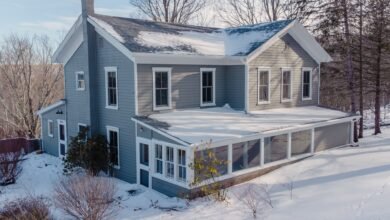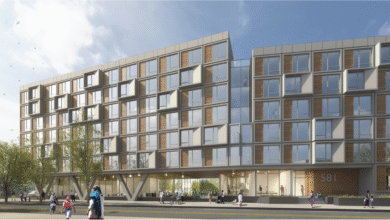Studio Gang’s agricultural education hub at Gravesend NYCHA complex breaks ground
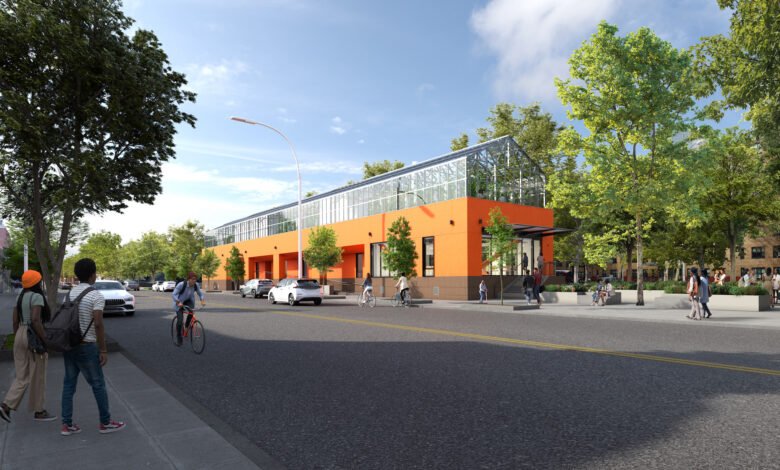
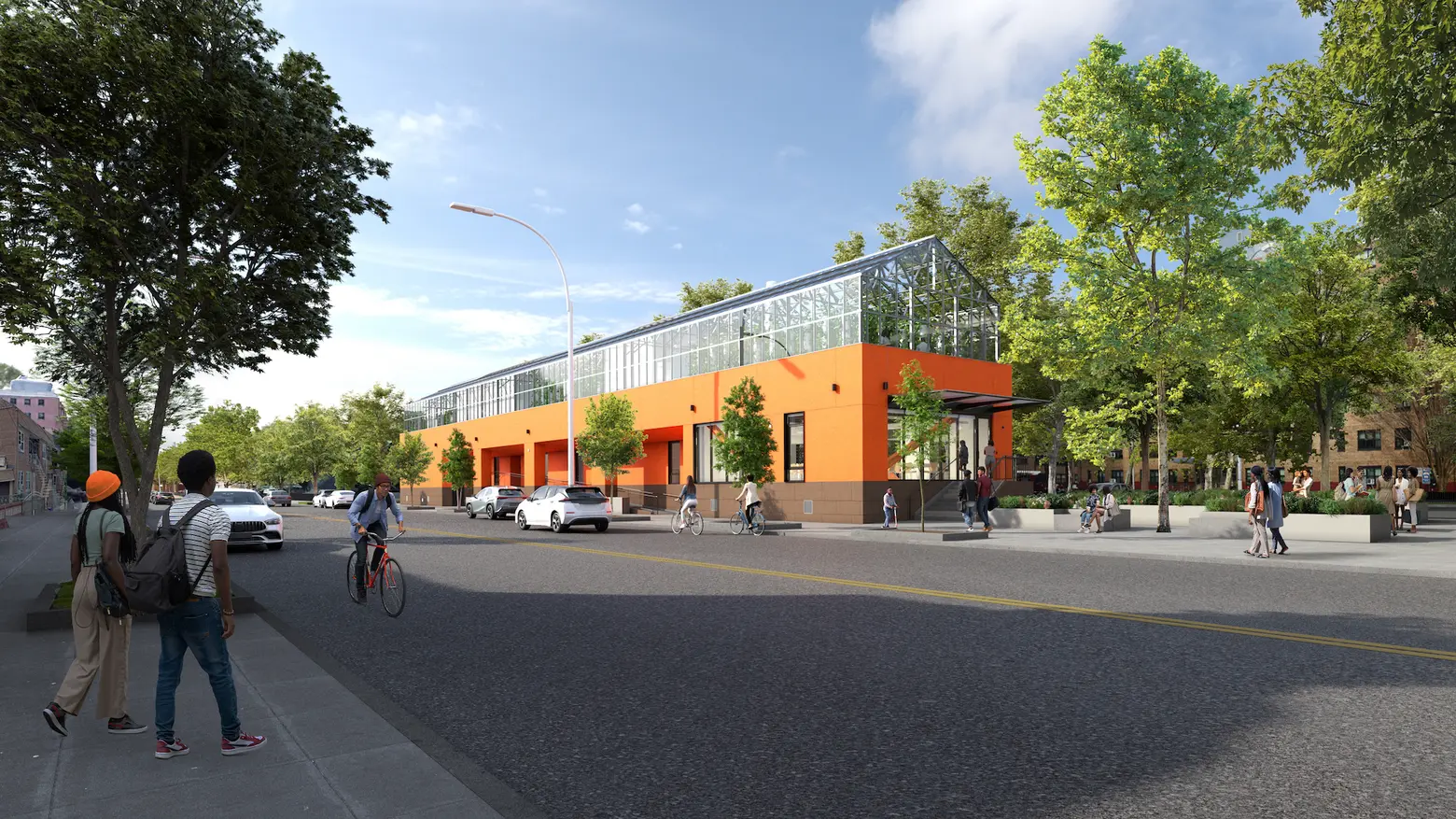
Marlboro Agricultural Education Center (MAEC), view from West 11th Street. © Studio Gang
Work has begun on a Studio Gang-designed urban agricultural education center that will teach young Brooklyn residents about nutrition and provide healthy food. City officials on Saturday broke ground on the 9,900-square-foot Marlboro Agricultural Education Center (MAEC) at the New York City Housing Authority’s Marlboro Houses in Gravesend. The $18.2 million facility, located on West 11th Street between Avenues W and X, includes a rooftop greenhouse to raise fish and plants, a teaching kitchen, a pantry where greens will be grown on-site and then delivered to residents, and multi-purpose room for programs and workshops.
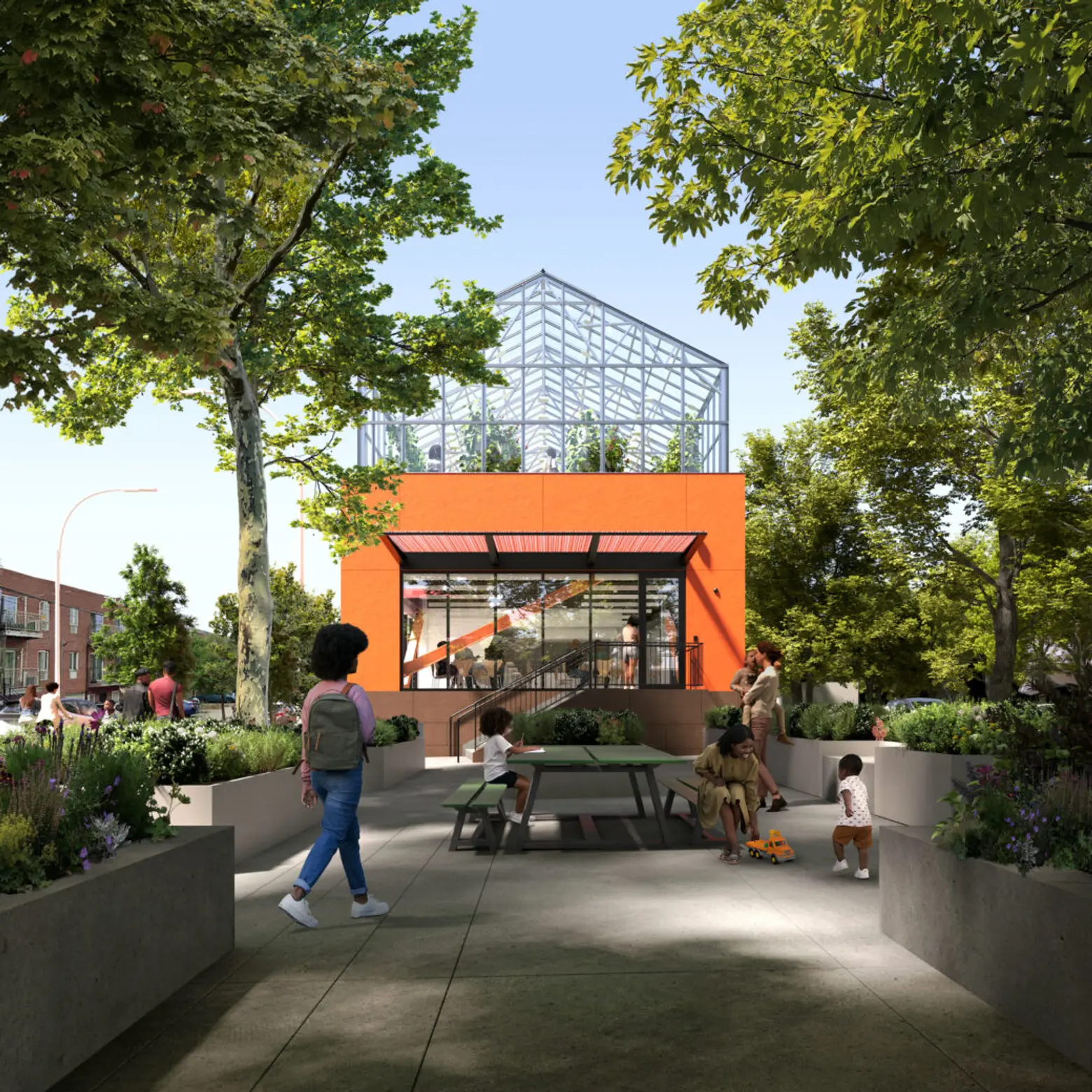
Designed by Jeanne Gang’s acclaimed firm Studio Gang, the MAEC maximizes sustainability by using materials that are durable and require little maintenance over a life cycle of over 60 years. The facility will be raised to protect from flooding and to create more spaces with natural light and views. The greenhouse growing areas will be situated on the second floor to maximize sunlight and visibility.
The design also incorporates passive heating and cooling, solar access for growing, all-electric systems, and rainwater storage and reuse, according to the architects.
“We’re proud to have partnered with the City of New York to design a building that empowers and provides for its neighborhood through urban agriculture,” Jeanne Gang, founding partner, Studio Gang, said. “I am hopeful that the Marlborough Agricultural Education Center will serve as a model for how our cities can address food insecurity, promote access to healthy food, and ultimately increase equity.”
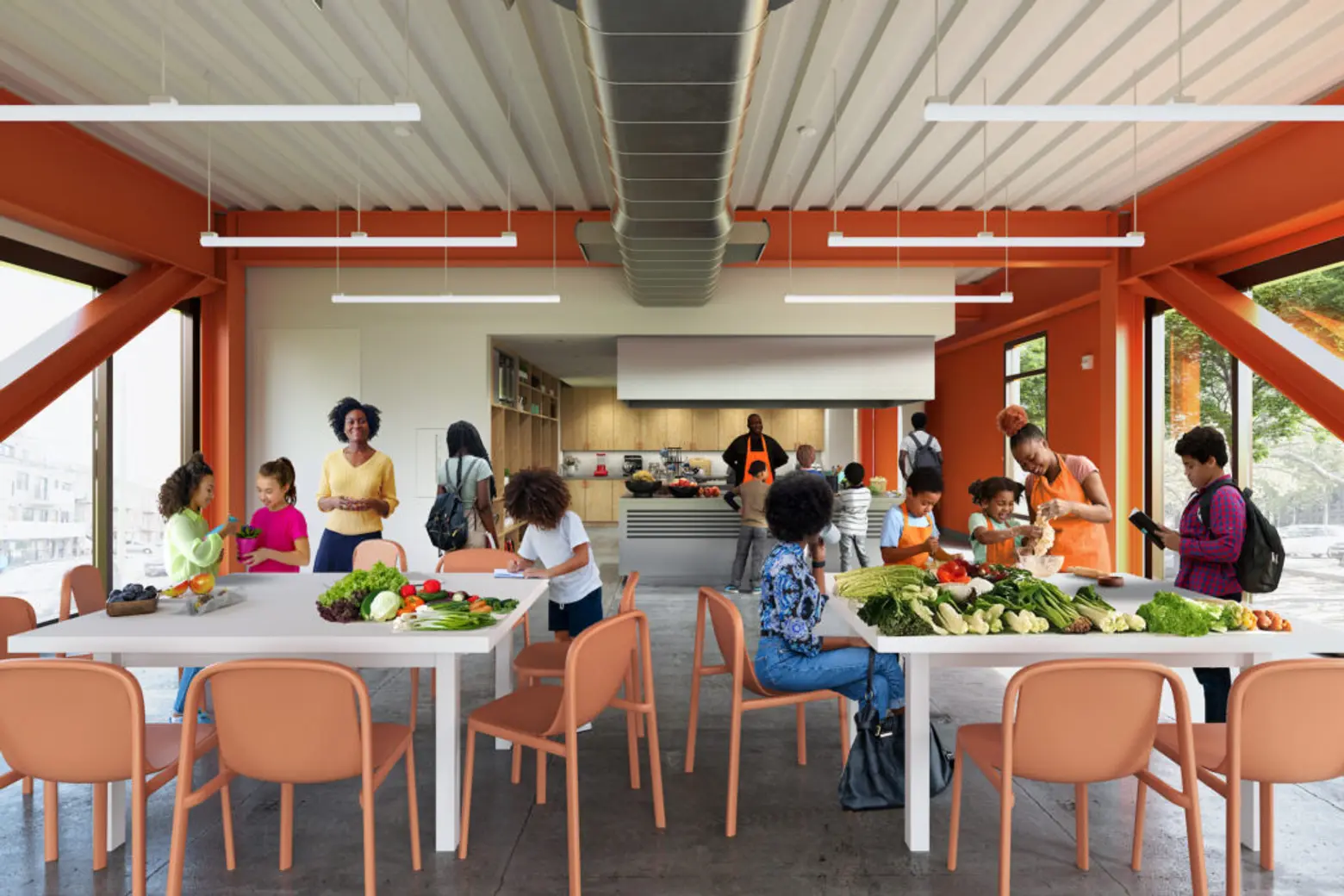
Operated by the Campaign Against Hunger (TCAH), the center will include a teaching kitchen for cooking classes and demonstrations for teens, adults, and seniors, as well as an indoor market during the winter. Additionally, the facility will feature a multipurpose room for job training and other community programs.
Programming will include TCAH’s “Green Teens” internship and certificate programs, and other partnerships with community schools, camps, and non-profits.
The new facility builds upon efforts to strengthen food autonomy and security in the city’s underserved neighborhoods. The project’s design will improve connections within the neighborhood and NYCHA campus with large sidewalks and windows that let spectators look in.
Due to the city’s Design-Build initiative, which cuts red tape to allow projects to be completed faster, construction is slated for completion in summer 2025.
In early May, Deputy Mayor for Operations Meera Joshi, NYC Comptroller Brad Lander, and other city officials called on the state government to ease restrictions and expand the use of contracting tools like Design-Build to accelerate the construction of projects across the city and state.
“Every neighborhood in New York City needs and deserves a lot more green, and Marlboro Greenhouse will green the Marlboro Houses year-round,” Joshi said. “Before it’s even built, it’s already done so much — it will be delivered two years early thanks to Design-Build, showing us all what possible if New York has access to better tools to deliver projects faster and less expensively. This week, Albany can grant New York the power to deliver projects like this citywide. It must.”
In October, the city broke ground on another Studio Gang-designed project, the Shirley Chisholm Recreation Center in East Flatbush. This $141 million facility will serve as a hub for learning, fitness, and recreation and is slated for completion in 2025, two years faster than other design contracts.
Studio Gang also designed the new Richard Gilder Center for Science, Education, and Innovation at the American Museum of Natural History, which opened last spring, and 11 Hoyt Street, a 57-story condo in Downtown Brooklyn.
RELATED:

